Improving Admission Management Process in Tertiary Instituions.
Enhancing enrolment processing speed by 35% while boosting the volume of admissions by 80%.
Company
FlexiSAF
FlexiSAF
Duration
3 Months
Tools
Adobe XD, Figma, Fontello,
Figjam, Miro, Hotjar
Team
Product designer (me)
2 Front-End Developers
2 Backend Developers
Product Manager
Product Owner
Core Responsibilities
Interaction Design
User Research
Visual Designs
User Testing
UI development (React)
Component Development (Design System)



275% Growth in Applications
Jumped from 200 in 8-12 weeks to 750 in 2 weeks.
88% Faster Submission
Reduced applicant time to complete applications.
33% Quicker Processing
Institutions processed applications 3 weeks faster.
Overview
SAFApply is an online solution for admission, enrolment and registration that addresses the challenges of manual admission within tertiary institutions removing all the paperwork involved in processing applications within tertiary institutions.
Providing applicants with information about their course of interest before applying.
A simplified application processing system that allows you to pre-screen candidates and prioritise
them based on the filters and criteria you have set.
Providing real-time performance information to high-level stakeholders within the institutions.
Overview
SAFApply is an online solution for admission, enrolment and registration that addresses the challenges of manual admission within tertiary institutions removing all the paperwork involved in processing applications within tertiary institutions.
Providing applicants with information about their course of interest before applying.
A simplified application processing system that allows you to pre-screen candidates and prioritise
them based on the filters and criteria you have set.
Providing real-time performance information to high-level stakeholders within the institutions.
Overview
SAFApply is an online solution for admission, enrolment and registration that addresses the challenges of manual admission within tertiary institutions removing all the paperwork involved in processing applications within tertiary institutions.
Providing applicants with information about their course of interest before applying.
A simplified application processing system that allows you to pre-screen candidates and prioritise
them based on the filters and criteria you have set.
Providing real-time performance information to high-level stakeholders within the institutions.
Overview
SAFApply is an online solution for admission, enrolment and registration that addresses the challenges of manual admission within tertiary institutions removing all the paperwork involved in processing applications within tertiary institutions.
Providing applicants with information about their course of interest before applying.
A simplified application processing system that allows you to pre-screen candidates and prioritise
them based on the filters and criteria you have set.
Providing real-time performance information to high-level stakeholders within the institutions.
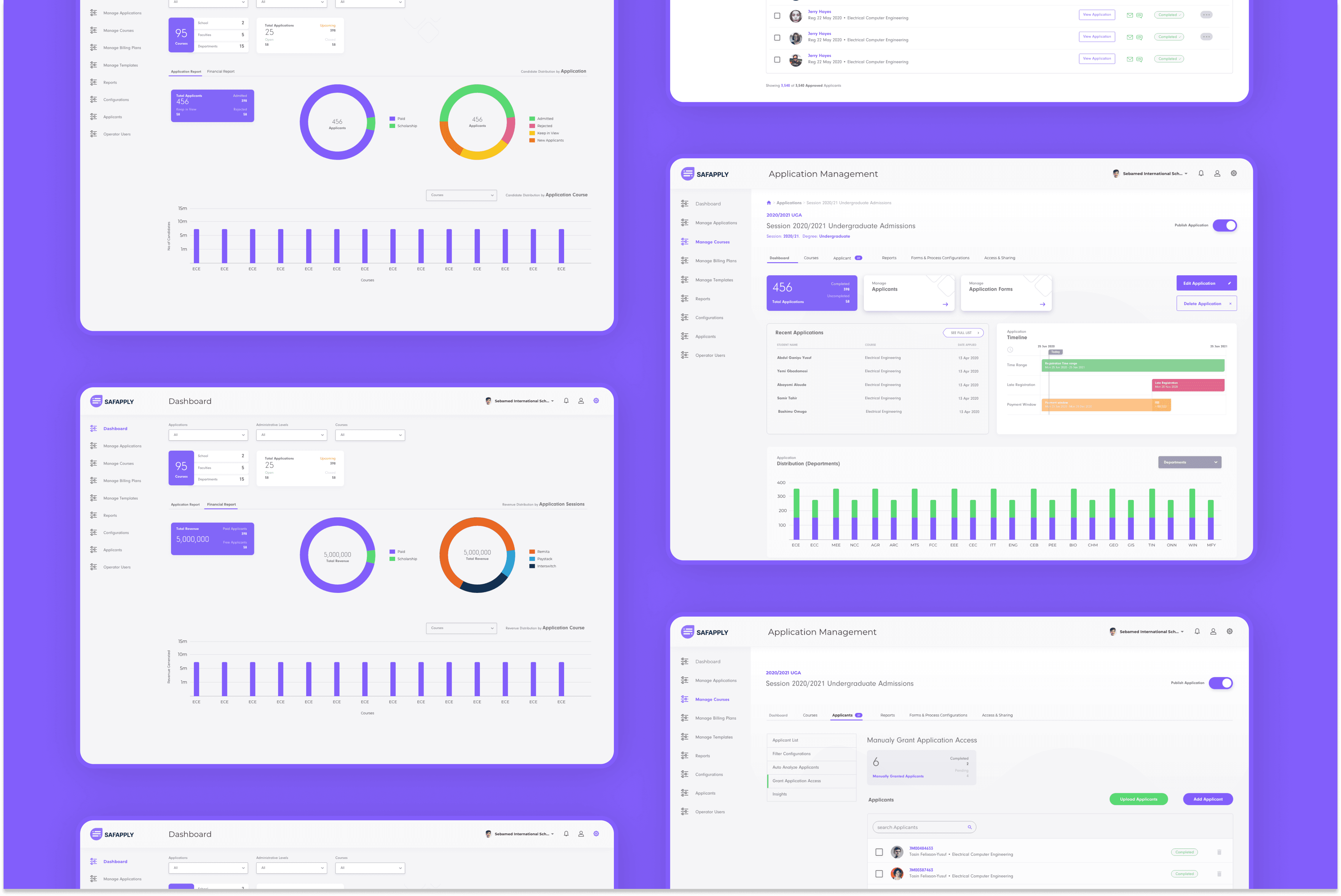


Problem Statement
Majority of the Tertiary institutions in Northern Nigeria operate a manual admission process
The goal of this project was to ease the hassle of the admission process load within academic institutions.
The initial process involved a lot of paper handling and lacked real-time information with the institution’s executives like the Vice Chancellor/Head Masters. We intend to bypass conventional paper-based admission processing and give students the ability to apply to institutions remotely from anywhere.
Our high-level goals were to:
Make it easy for admission officers to process academic admission.
Manage time and reduce errors efficiently.
Remote access to academic course information and application for applicants.
Seamless access to admission performance by top-level stakeholders like Vice Chancellors.
Problem Statement
Majority of the Tertiary institutions in Northern Nigeria operate a manual admission process
The goal of this project was to ease the hassle of the admission process load within academic institutions.
The initial process involved a lot of paper handling and lacked real-time information with the institution’s executives like the Vice Chancellor/Head Masters. We intend to bypass conventional paper-based admission processing and give students the ability to apply to institutions remotely from anywhere.
Our high-level goals were to:
Make it easy for admission officers to process academic admission.
Manage time and reduce errors efficiently.
Remote access to academic course information and application for applicants.
Seamless access to admission performance by top-level stakeholders like Vice Chancellors.
Problem Statement
Majority of the Tertiary institutions in Northern Nigeria operate a manual admission process
The goal of this project was to ease the hassle of the admission process load within academic institutions.
The initial process involved a lot of paper handling and lacked real-time information with the institution’s executives like the Vice Chancellor/Head Masters. We intend to bypass conventional paper-based admission processing and give students the ability to apply to institutions remotely from anywhere.
Our high-level goals were to:
Make it easy for admission officers to process academic admission.
Manage time and reduce errors efficiently.
Remote access to academic course information and application for applicants.
Seamless access to admission performance by top-level stakeholders like Vice Chancellors.
Problem Statement
Majority of the Tertiary institutions in Northern Nigeria operate a manual admission process
The goal of this project was to ease the hassle of the admission process load within academic institutions.
The initial process involved a lot of paper handling and lacked real-time information with the institution’s executives like the Vice Chancellor/Head Masters. We intend to bypass conventional paper-based admission processing and give students the ability to apply to institutions remotely from anywhere.
Our high-level goals were to:
Make it easy for admission officers to process academic admission.
Manage time and reduce errors efficiently.
Remote access to academic course information and application for applicants.
Seamless access to admission performance by top-level stakeholders like Vice Chancellors.
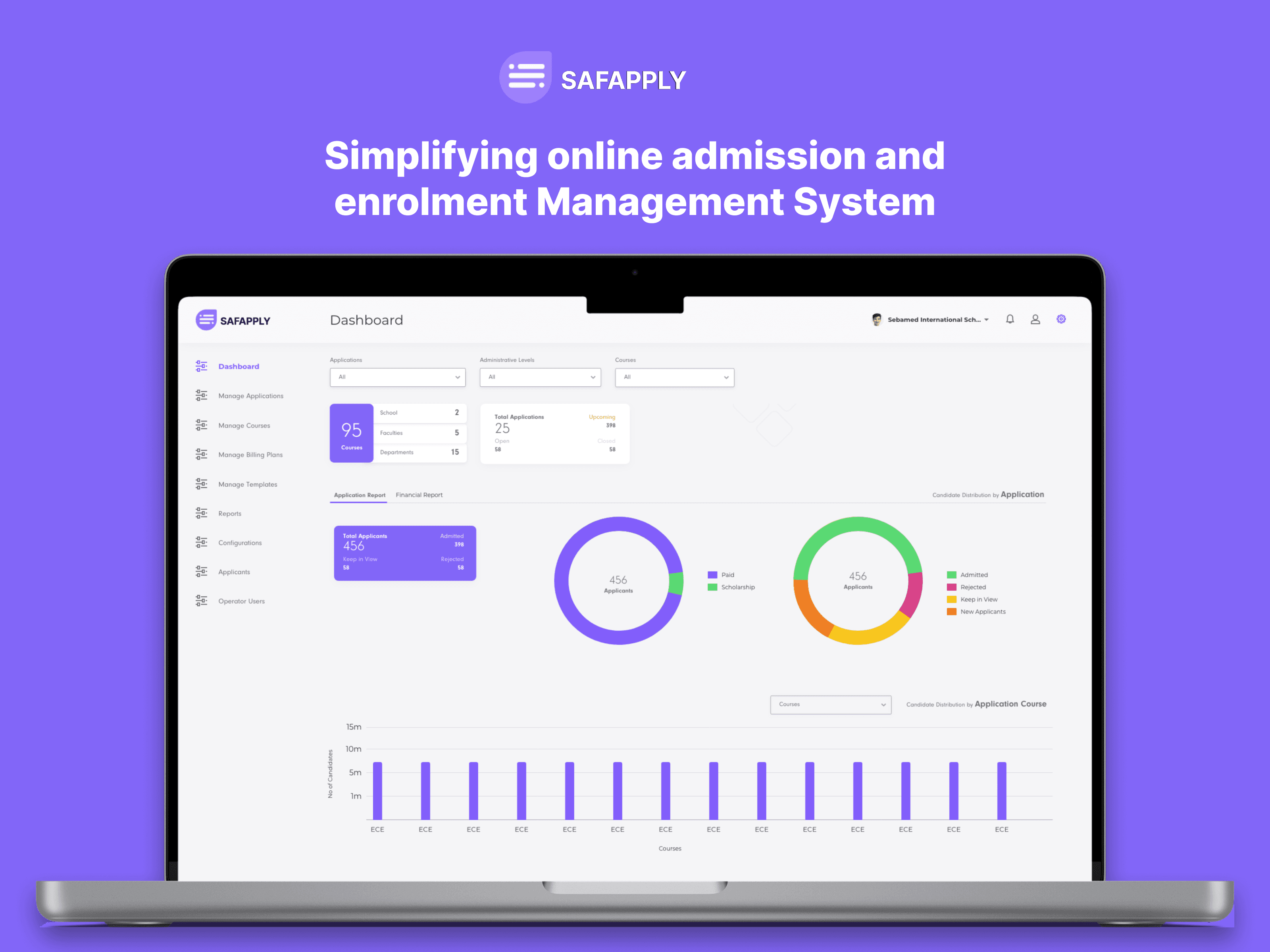


Design Approach
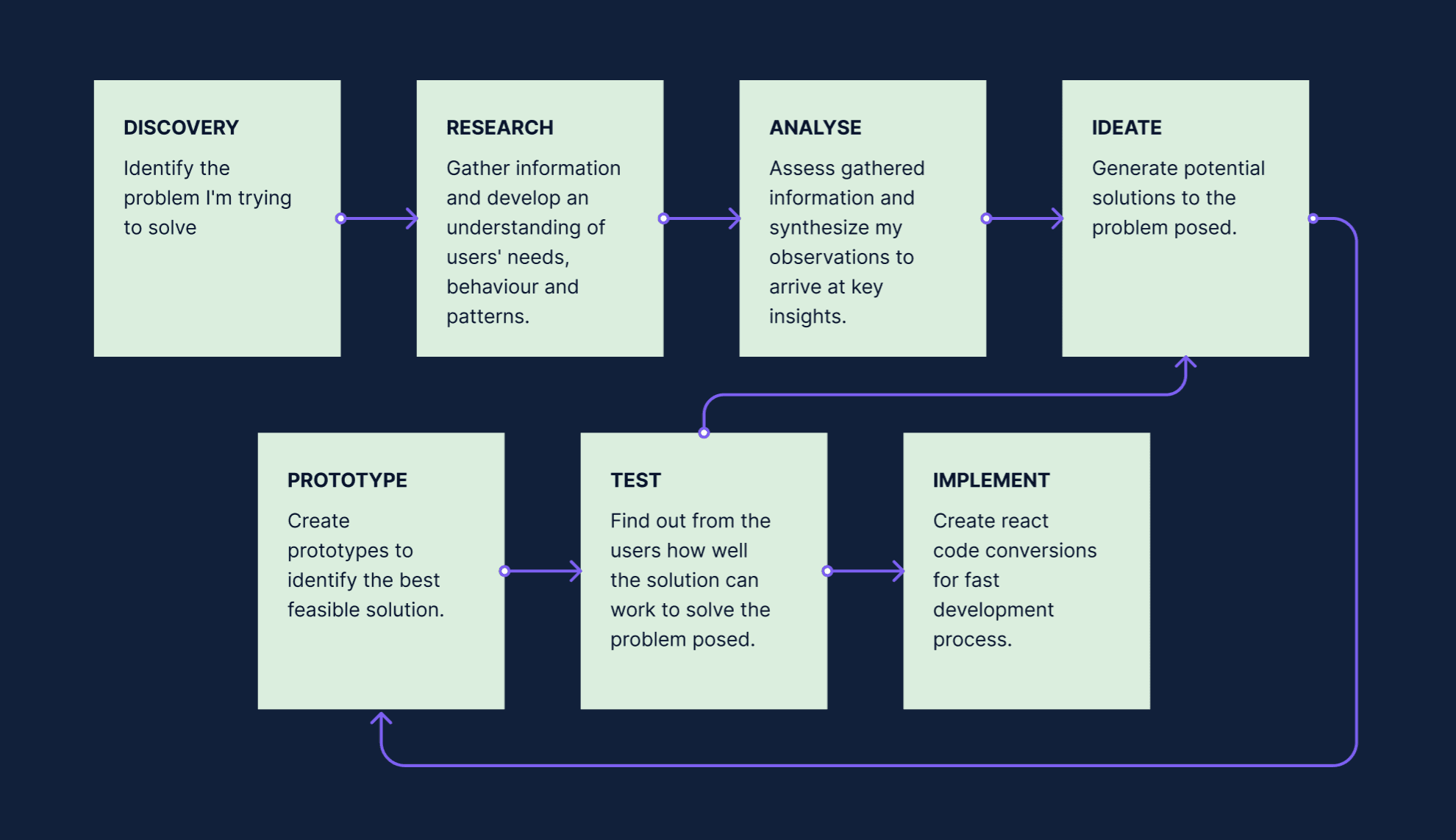
Discovery
During the discovery process, the primary goal was to gather a deep understanding of how different institutions handle their admission process and identify the major pain points that applicants face.
This involved visited 15 institutions, talking to school administrators, admission offices, and even the ICT heads at some schools.
Interview Goals:
Understanding the needs and priorities of applicants.
Identifying the frustrations experienced by current students.
Uncovering the challenges faced by new applicants.
This process involved interviewing 125 students and applicants to gather more insight for a more specific and unique experience.
Some of the research questions involved.
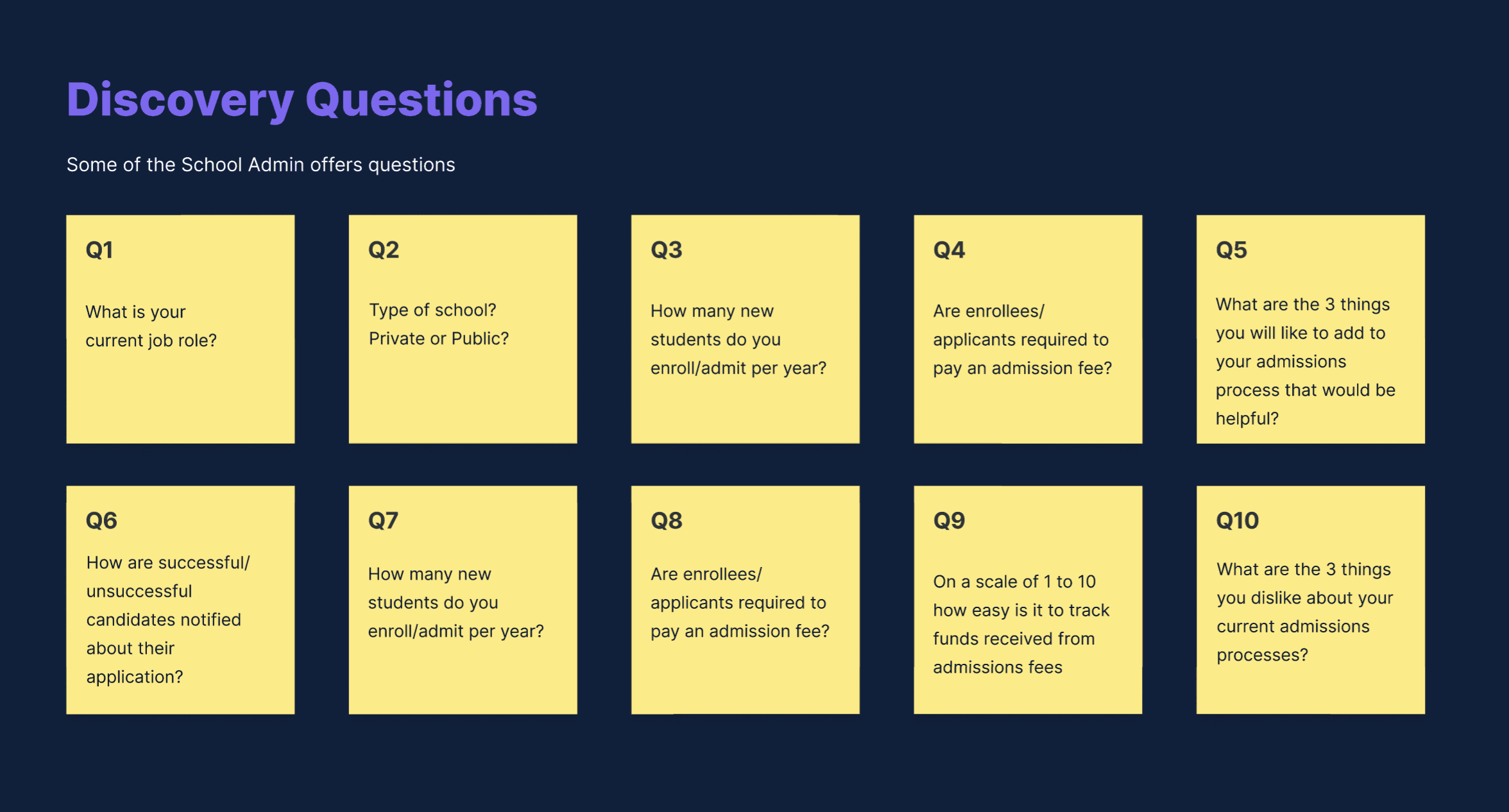
Key Insights
Key insights from interviews on the current process highlighted several pain points:
Most schools primarily rely on traditional media like TV, while some use their websites to advertise student applications, limiting reach and efficiency.
Many administrative officers noted that the application process takes too long to complete, often causing delays.
The assessment process remains largely manual, with paper-based evaluations adding to administrative workload and time.
Applicants experience significant inconvenience, as they frequently need to visit campus for aptitude tests and return home before resumption, creating additional stress and logistical challenges.
Persona
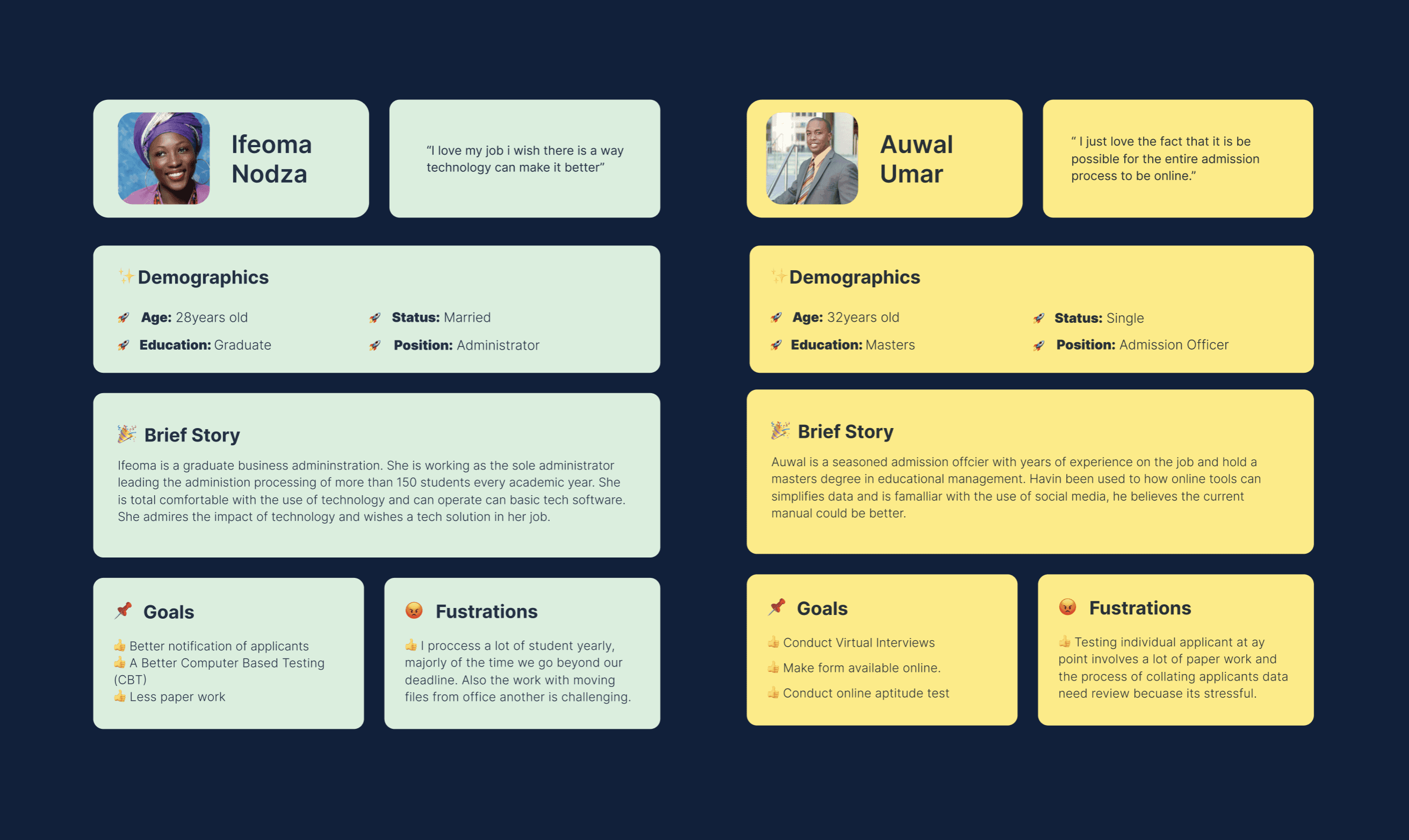
Design Approach

Discovery
During the discovery process, the primary goal was to gather a deep understanding of how different institutions handle their admission process and identify the major pain points that applicants face.
This involved visited 15 institutions, talking to school administrators, admission offices, and even the ICT heads at some schools.
Interview Goals:
Understanding the needs and priorities of applicants.
Identifying the frustrations experienced by current students.
Uncovering the challenges faced by new applicants.
This process involved interviewing 125 students and applicants to gather more insight for a more specific and unique experience.
Some of the research questions involved.

Key Insights
Key insights from interviews on the current process highlighted several pain points:
Most schools primarily rely on traditional media like TV, while some use their websites to advertise student applications, limiting reach and efficiency.
Many administrative officers noted that the application process takes too long to complete, often causing delays.
The assessment process remains largely manual, with paper-based evaluations adding to administrative workload and time.
Applicants experience significant inconvenience, as they frequently need to visit campus for aptitude tests and return home before resumption, creating additional stress and logistical challenges.
Persona

Design Approach

Discovery
During the discovery process, the primary goal was to gather a deep understanding of how different institutions handle their admission process and identify the major pain points that applicants face.
This involved visited 15 institutions, talking to school administrators, admission offices, and even the ICT heads at some schools.
Interview Goals:
Understanding the needs and priorities of applicants.
Identifying the frustrations experienced by current students.
Uncovering the challenges faced by new applicants.
This process involved interviewing 125 students and applicants to gather more insight for a more specific and unique experience.
Some of the research questions involved.

Key Insights
Key insights from interviews on the current process highlighted several pain points:
Most schools primarily rely on traditional media like TV, while some use their websites to advertise student applications, limiting reach and efficiency.
Many administrative officers noted that the application process takes too long to complete, often causing delays.
The assessment process remains largely manual, with paper-based evaluations adding to administrative workload and time.
Applicants experience significant inconvenience, as they frequently need to visit campus for aptitude tests and return home before resumption, creating additional stress and logistical challenges.
Persona

Design Approach

Discovery
During the discovery process, the primary goal was to gather a deep understanding of how different institutions handle their admission process and identify the major pain points that applicants face.
This involved visited 15 institutions, talking to school administrators, admission offices, and even the ICT heads at some schools.
Interview Goals:
Understanding the needs and priorities of applicants.
Identifying the frustrations experienced by current students.
Uncovering the challenges faced by new applicants.
This process involved interviewing 125 students and applicants to gather more insight for a more specific and unique experience.
Some of the research questions involved.

Key Insights
Key insights from interviews on the current process highlighted several pain points:
Most schools primarily rely on traditional media like TV, while some use their websites to advertise student applications, limiting reach and efficiency.
Many administrative officers noted that the application process takes too long to complete, often causing delays.
The assessment process remains largely manual, with paper-based evaluations adding to administrative workload and time.
Applicants experience significant inconvenience, as they frequently need to visit campus for aptitude tests and return home before resumption, creating additional stress and logistical challenges.
Persona

Sketches
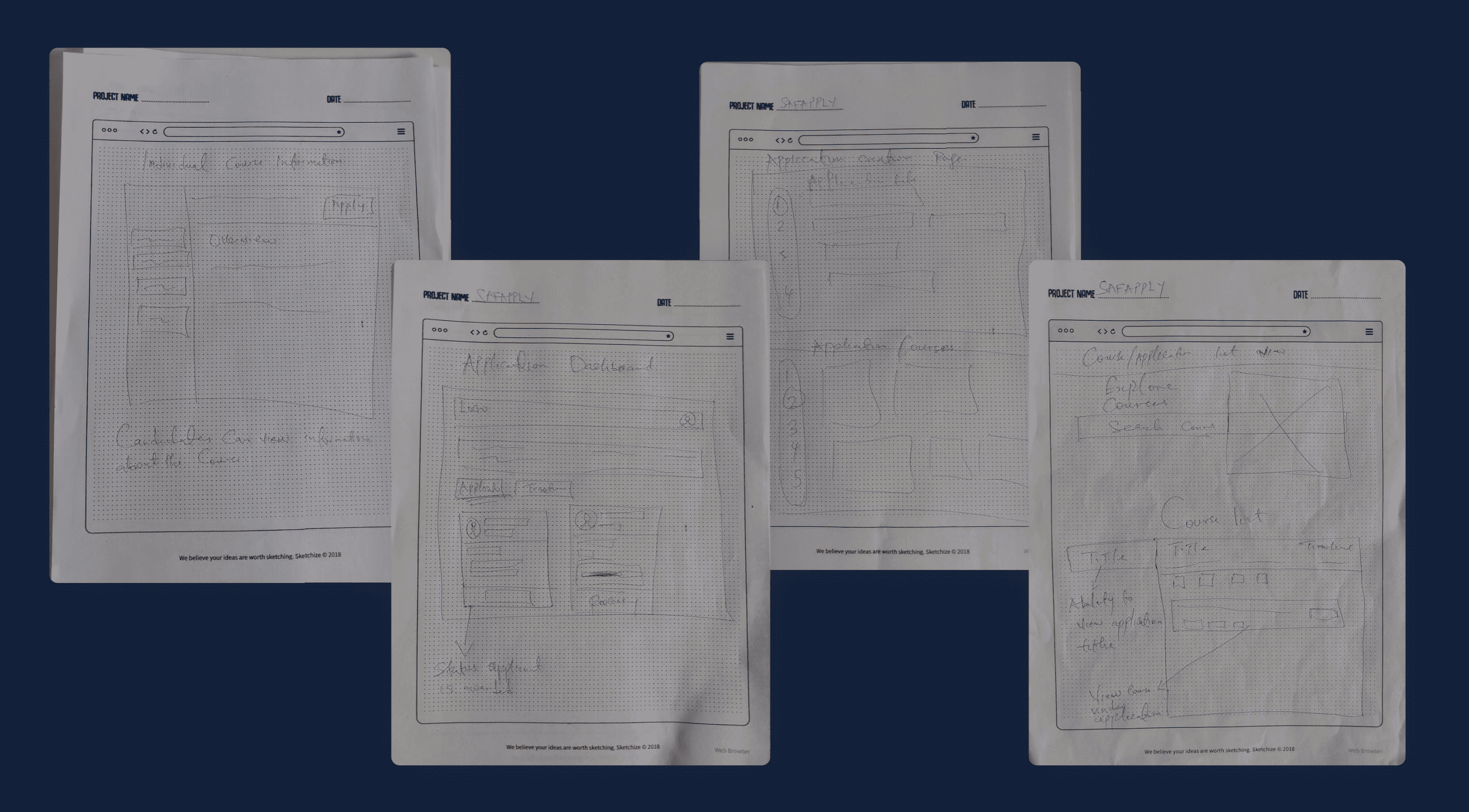
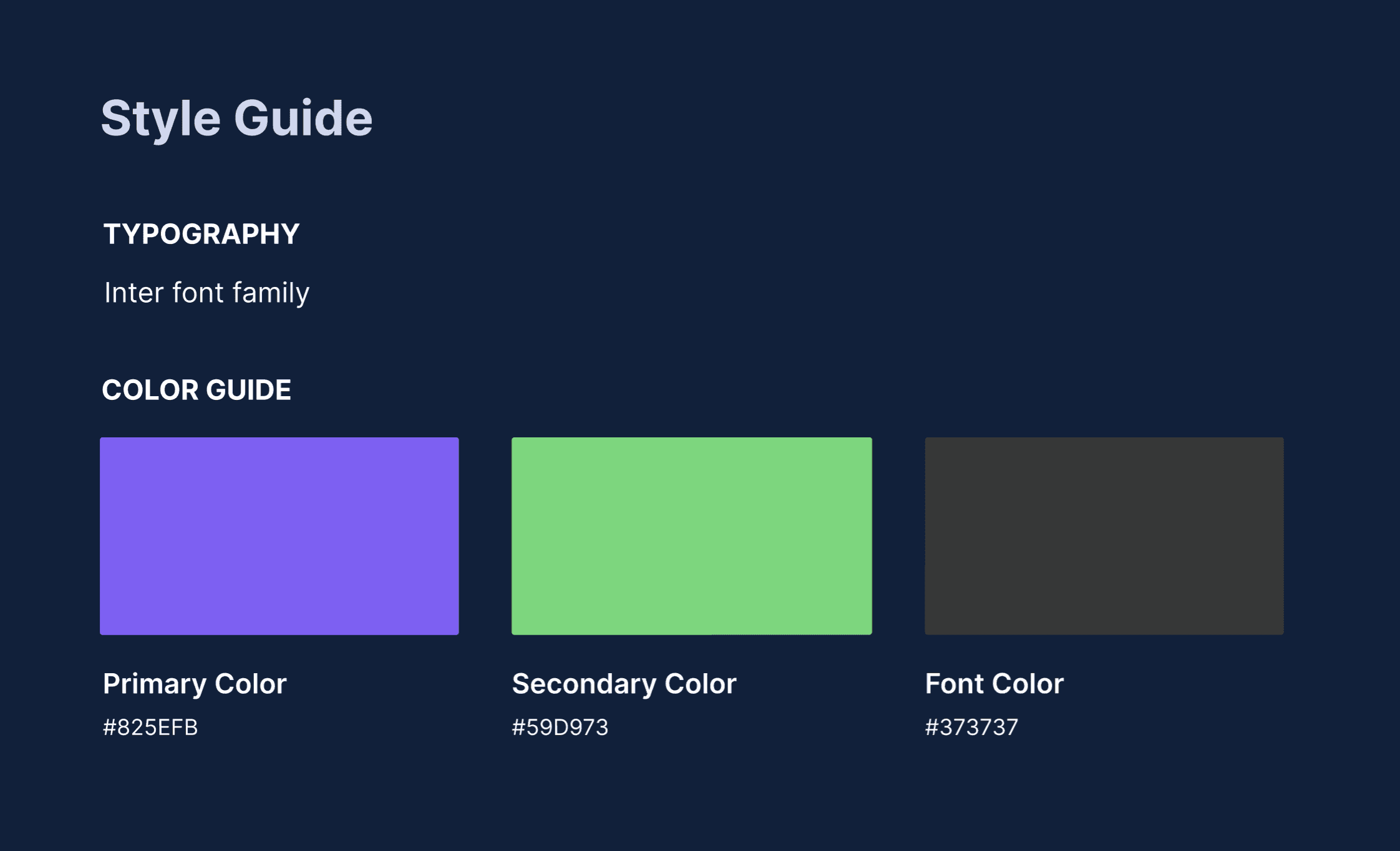
Component Library
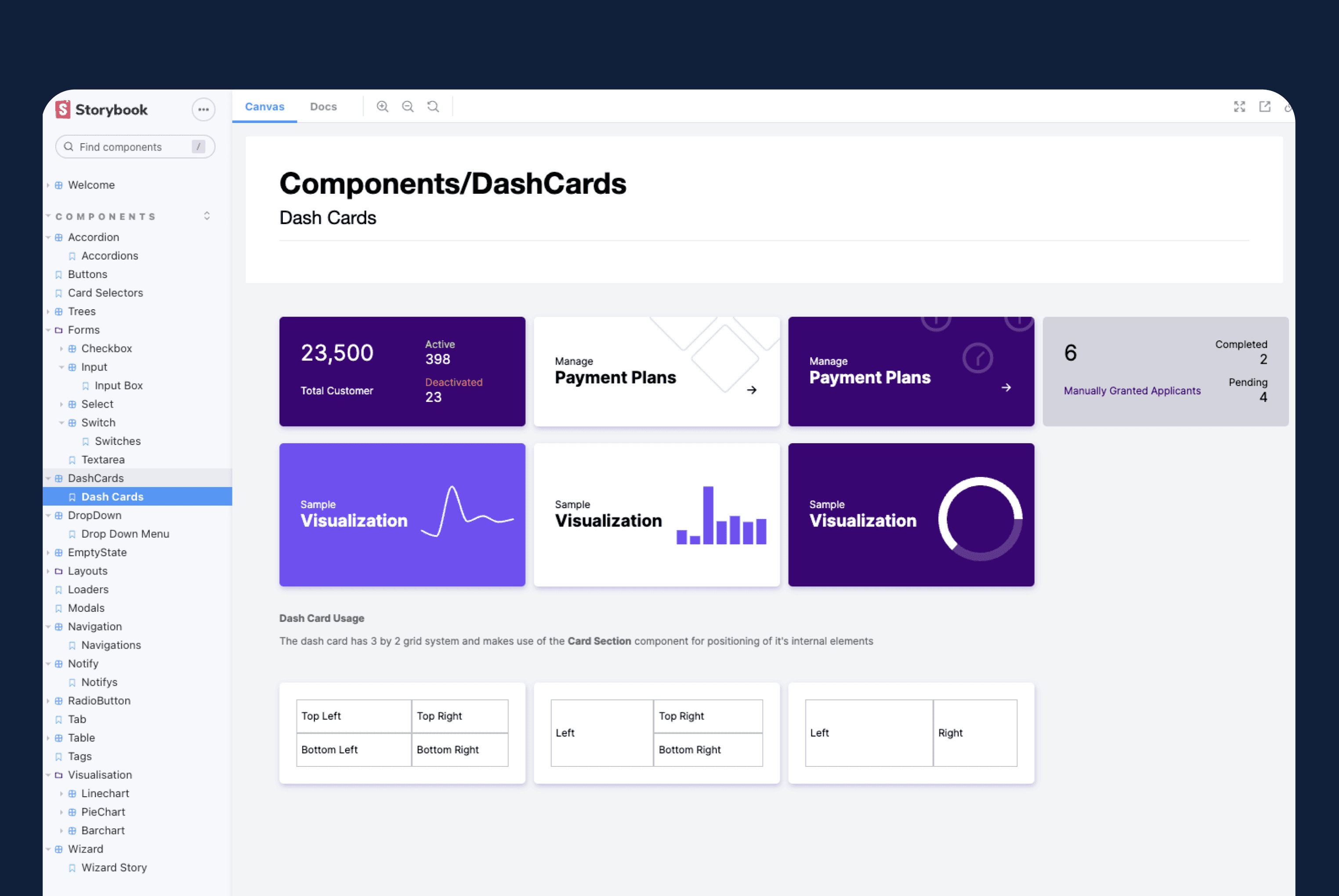
Sketches


Component Library

Sketches


Component Library

Sketches


Component Library

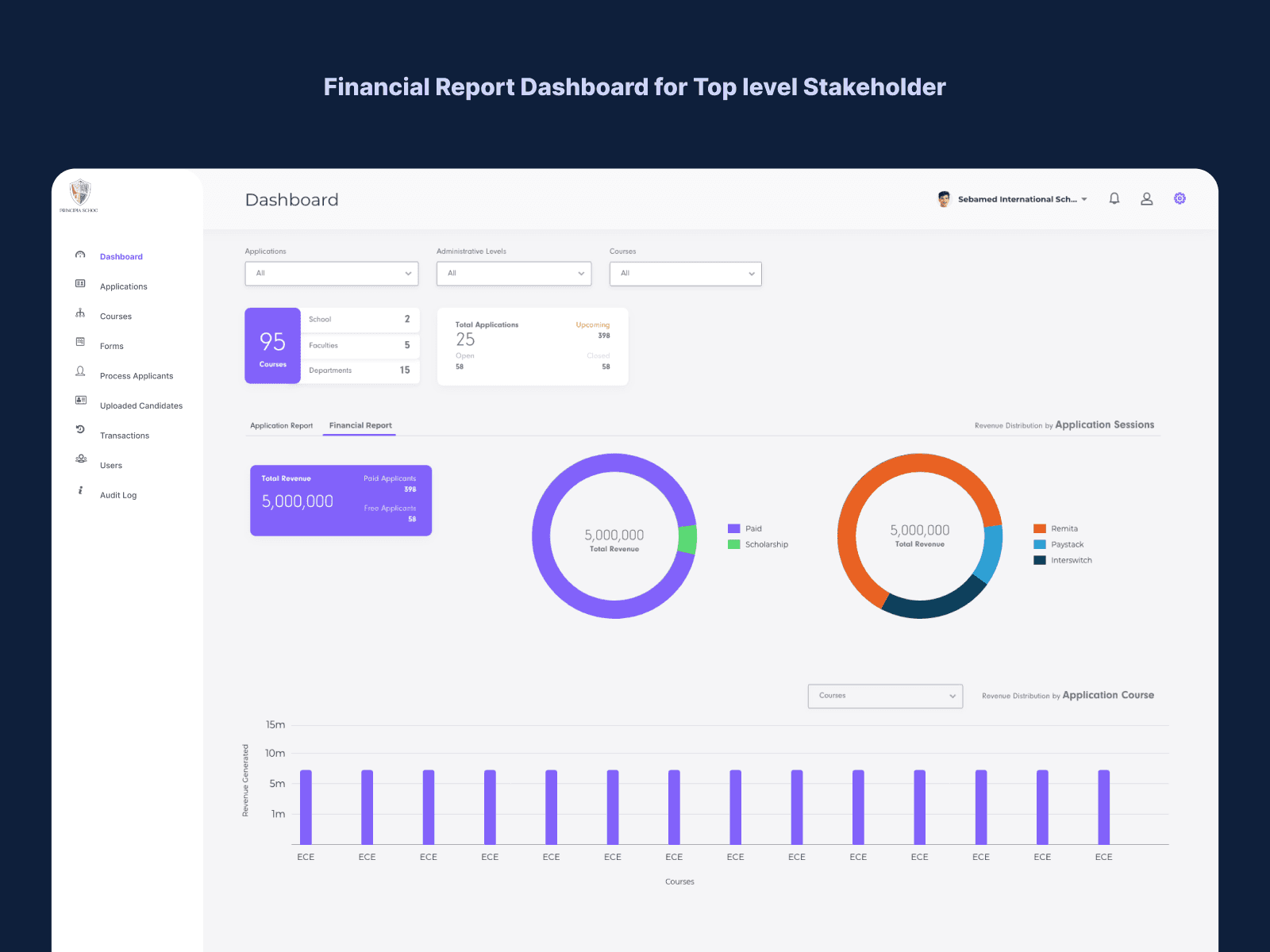



Applicant Management Portal
This centralises the application process, giving administrators an organised view of each applicant’s status and details. This feature simplifies filtering, reviewing, and managing applications based on pre-set criteria. Impact;
50% Reduction in Manual Review Time: Automated tracking and filters save administrators significant time, enhancing efficiency.
80% Increase in Application Visibility: Administrators report easier access to applicant details and stage-based information, resulting in quicker decision-making.
90% Error Reduction: Reduced likelihood of application errors or misplacement, boosting accuracy and reliability.
Applicant Management Portal
This centralises the application process, giving administrators an organised view of each applicant’s status and details. This feature simplifies filtering, reviewing, and managing applications based on pre-set criteria. Impact;
50% Reduction in Manual Review Time: Automated tracking and filters save administrators significant time, enhancing efficiency.
80% Increase in Application Visibility: Administrators report easier access to applicant details and stage-based information, resulting in quicker decision-making.
90% Error Reduction: Reduced likelihood of application errors or misplacement, boosting accuracy and reliability.
Applicant Management Portal
This centralises the application process, giving administrators an organised view of each applicant’s status and details. This feature simplifies filtering, reviewing, and managing applications based on pre-set criteria. Impact;
50% Reduction in Manual Review Time: Automated tracking and filters save administrators significant time, enhancing efficiency.
80% Increase in Application Visibility: Administrators report easier access to applicant details and stage-based information, resulting in quicker decision-making.
90% Error Reduction: Reduced likelihood of application errors or misplacement, boosting accuracy and reliability.
Applicant Management Portal
This centralises the application process, giving administrators an organised view of each applicant’s status and details. This feature simplifies filtering, reviewing, and managing applications based on pre-set criteria. Impact;
50% Reduction in Manual Review Time: Automated tracking and filters save administrators significant time, enhancing efficiency.
80% Increase in Application Visibility: Administrators report easier access to applicant details and stage-based information, resulting in quicker decision-making.
90% Error Reduction: Reduced likelihood of application errors or misplacement, boosting accuracy and reliability.
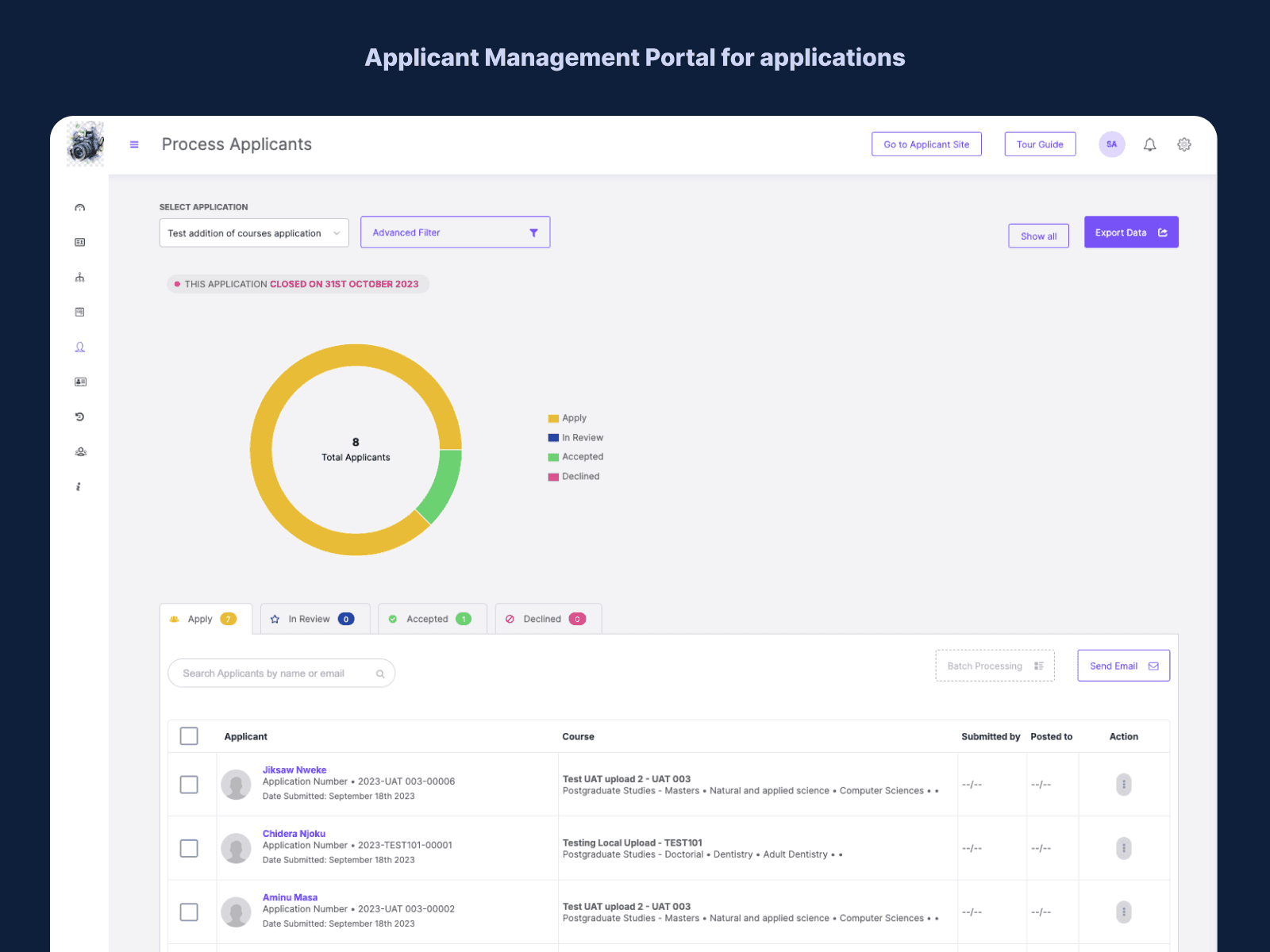


Course Management Portal
This portal allows administrators and course coordinators to maintain up-to-date course offerings and eligibility criteria. By keeping course information accurate and accessible, the Course Management Portal helps ensure prospective applicants have the latest details, reducing confusion and repetitive inquiries.
Email Notification Templates
75% Faster Communication with Applicants: Automatic notifications decrease response times, providing applicants with real-time updates.
35% Reduced Follow-up Calls/Emails: Applicants feel more informed, reducing additional calls or emails for status updates.
Application Creation Modal with Stages
The staged Application Creation Modal guides applicants through a step-by-step process, reducing incomplete applications and increasing data accuracy. This feature also provides administrators with visibility into each applicant's progress, allowing for timely follow-ups if needed.
Course Management Portal
This portal allows administrators and course coordinators to maintain up-to-date course offerings and eligibility criteria. By keeping course information accurate and accessible, the Course Management Portal helps ensure prospective applicants have the latest details, reducing confusion and repetitive inquiries.
Email Notification Templates
75% Faster Communication with Applicants: Automatic notifications decrease response times, providing applicants with real-time updates.
35% Reduced Follow-up Calls/Emails: Applicants feel more informed, reducing additional calls or emails for status updates.
Application Creation Modal with Stages
The staged Application Creation Modal guides applicants through a step-by-step process, reducing incomplete applications and increasing data accuracy. This feature also provides administrators with visibility into each applicant's progress, allowing for timely follow-ups if needed.
Course Management Portal
This portal allows administrators and course coordinators to maintain up-to-date course offerings and eligibility criteria. By keeping course information accurate and accessible, the Course Management Portal helps ensure prospective applicants have the latest details, reducing confusion and repetitive inquiries.
Email Notification Templates
75% Faster Communication with Applicants: Automatic notifications decrease response times, providing applicants with real-time updates.
35% Reduced Follow-up Calls/Emails: Applicants feel more informed, reducing additional calls or emails for status updates.
Application Creation Modal with Stages
The staged Application Creation Modal guides applicants through a step-by-step process, reducing incomplete applications and increasing data accuracy. This feature also provides administrators with visibility into each applicant's progress, allowing for timely follow-ups if needed.
Course Management Portal
This portal allows administrators and course coordinators to maintain up-to-date course offerings and eligibility criteria. By keeping course information accurate and accessible, the Course Management Portal helps ensure prospective applicants have the latest details, reducing confusion and repetitive inquiries.
Email Notification Templates
75% Faster Communication with Applicants: Automatic notifications decrease response times, providing applicants with real-time updates.
35% Reduced Follow-up Calls/Emails: Applicants feel more informed, reducing additional calls or emails for status updates.
Application Creation Modal with Stages
The staged Application Creation Modal guides applicants through a step-by-step process, reducing incomplete applications and increasing data accuracy. This feature also provides administrators with visibility into each applicant's progress, allowing for timely follow-ups if needed.
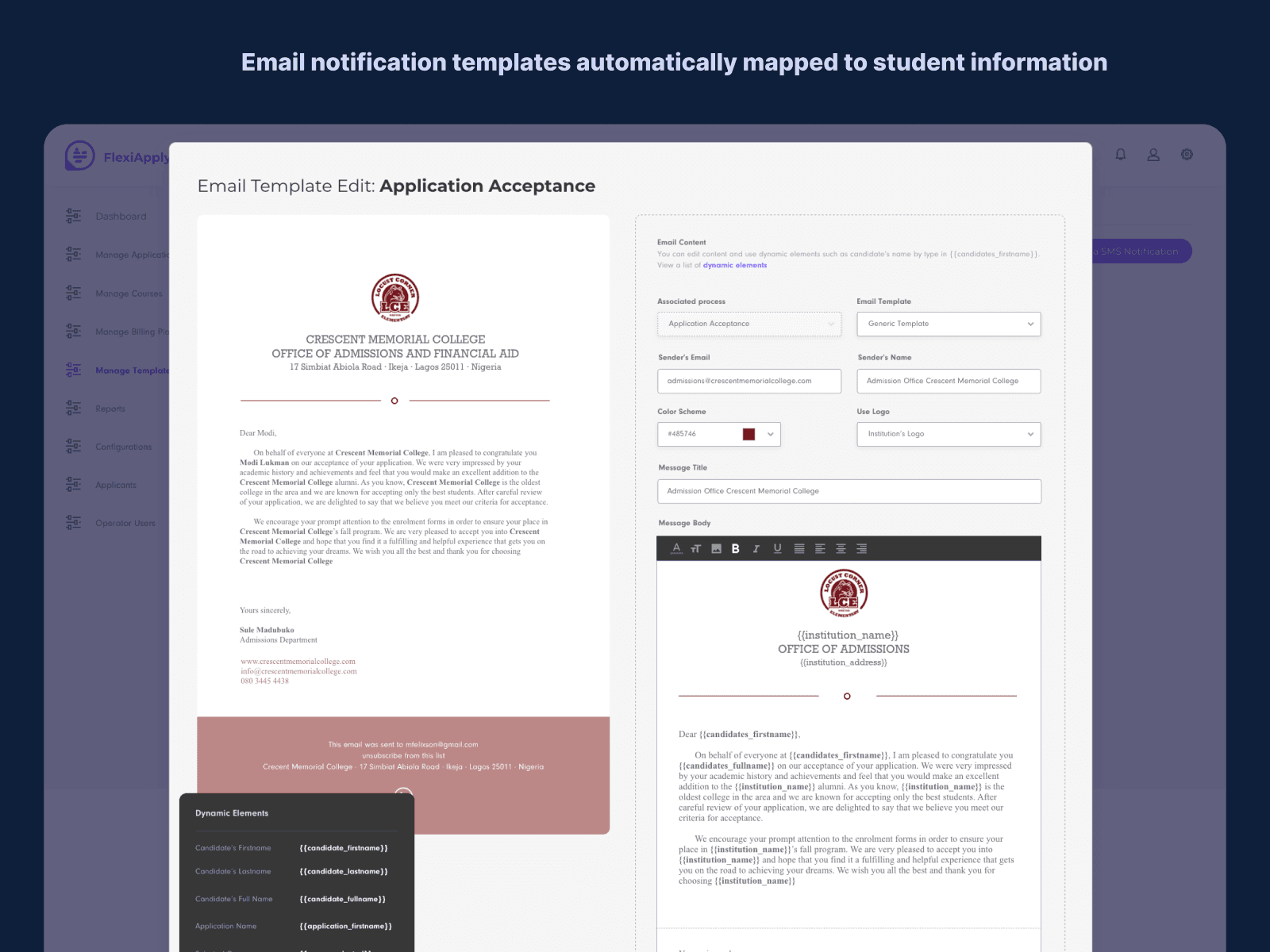


Financial Report Dashboard
The Financial Report Dashboard offers a real-time view of application fees, payments, and financial trends, providing stakeholders and financial accountants with insights for auditing and decision-making. This dashboard simplifies the reconciliation process and enhances revenue tracking leading 80% Reduction in Financial Reconciliation Time
Admission Form Template Builder
This feature enables administrators to create customised admission forms that collect all necessary information in one go. 40% Faster Form Creation where Institutions can quickly set up forms specific to their requirements without external support, reducing administrative overhead.
Admission Workflow Template Builder
With a drag-and-drop builder, administrators can customise admission workflows to match their specific processes. This flexibility allows institutions to easily adapt workflows for different application requirements.
Financial Report Dashboard
The Financial Report Dashboard offers a real-time view of application fees, payments, and financial trends, providing stakeholders and financial accountants with insights for auditing and decision-making. This dashboard simplifies the reconciliation process and enhances revenue tracking leading 80% Reduction in Financial Reconciliation Time
Admission Form Template Builder
This feature enables administrators to create customised admission forms that collect all necessary information in one go. 40% Faster Form Creation where Institutions can quickly set up forms specific to their requirements without external support, reducing administrative overhead.
Admission Workflow Template Builder
With a drag-and-drop builder, administrators can customise admission workflows to match their specific processes. This flexibility allows institutions to easily adapt workflows for different application requirements.
Financial Report Dashboard
The Financial Report Dashboard offers a real-time view of application fees, payments, and financial trends, providing stakeholders and financial accountants with insights for auditing and decision-making. This dashboard simplifies the reconciliation process and enhances revenue tracking leading 80% Reduction in Financial Reconciliation Time
Admission Form Template Builder
This feature enables administrators to create customised admission forms that collect all necessary information in one go. 40% Faster Form Creation where Institutions can quickly set up forms specific to their requirements without external support, reducing administrative overhead.
Admission Workflow Template Builder
With a drag-and-drop builder, administrators can customise admission workflows to match their specific processes. This flexibility allows institutions to easily adapt workflows for different application requirements.
Financial Report Dashboard
The Financial Report Dashboard offers a real-time view of application fees, payments, and financial trends, providing stakeholders and financial accountants with insights for auditing and decision-making. This dashboard simplifies the reconciliation process and enhances revenue tracking leading 80% Reduction in Financial Reconciliation Time
Admission Form Template Builder
This feature enables administrators to create customised admission forms that collect all necessary information in one go. 40% Faster Form Creation where Institutions can quickly set up forms specific to their requirements without external support, reducing administrative overhead.
Admission Workflow Template Builder
With a drag-and-drop builder, administrators can customise admission workflows to match their specific processes. This flexibility allows institutions to easily adapt workflows for different application requirements.
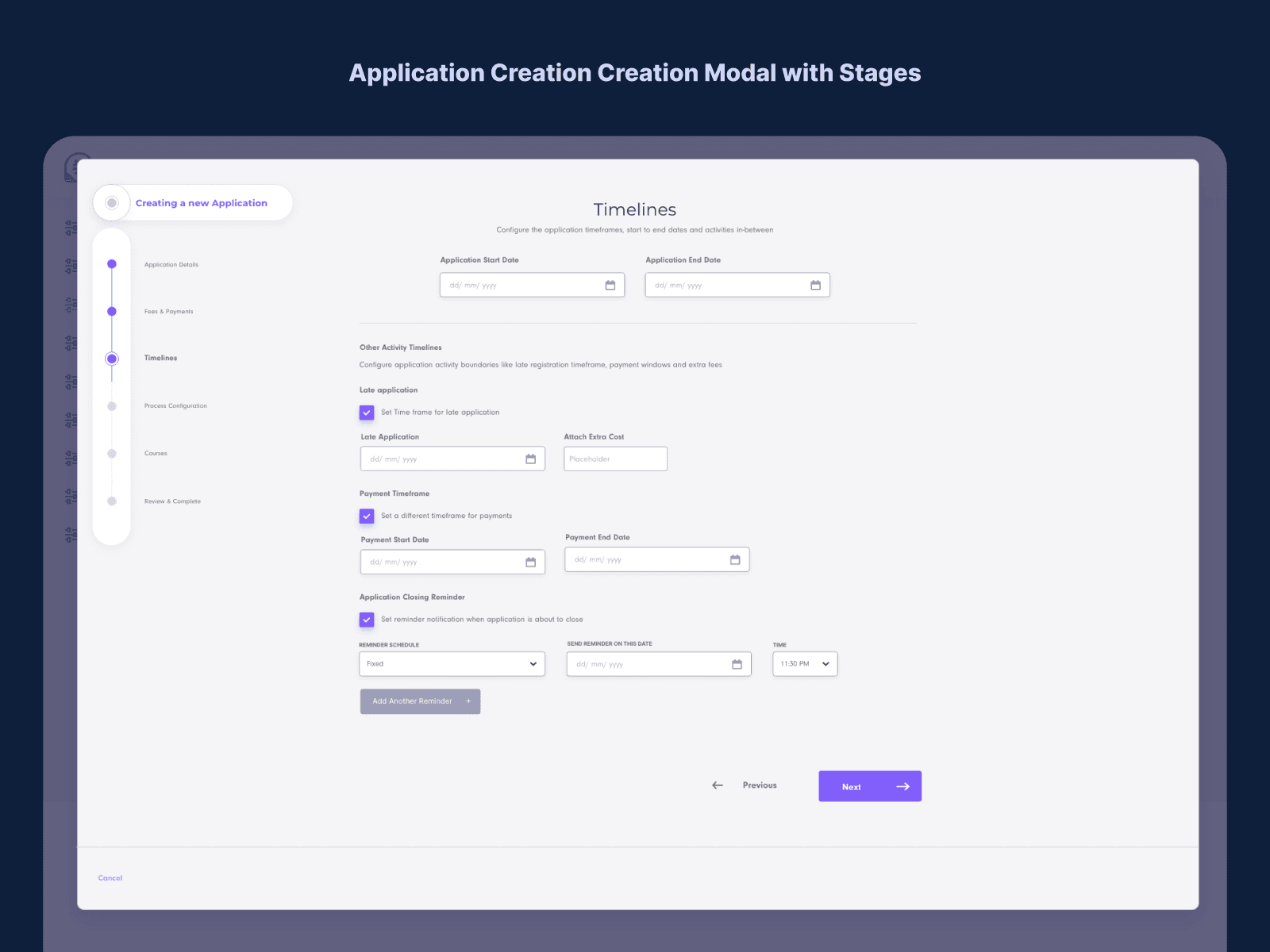


Key Improvement in Metrics
While certain parts of the project are still ongoing, such as managing received applications, we tested the portal with three (3) universities and progress was impressive.
Initial Perfomance.
Approximately 200 Applications were received within 8 - 12 weeks and processed with a 3 - 4weeks application window.
Metric With SAFApply
Over 750 applicants applied with 2 weeks of open application while they processed feedback for 2 - 3 weeks application window.
275% improvement in application volume.
75%-88% improvement in Applicant speed
25%-33% improvement in Time to process an application.
Key Improvement in Metrics
While certain parts of the project are still ongoing, such as managing received applications, we tested the portal with three (3) universities and progress was impressive.
Initial Perfomance.
Approximately 200 Applications were received within 8 - 12 weeks and processed with a 3 - 4weeks application window.
Metric With SAFApply
Over 750 applicants applied with 2 weeks of open application while they processed feedback for 2 - 3 weeks application window.
275% improvement in application volume.
75%-88% improvement in Applicant speed
25%-33% improvement in Time to process an application.
Key Improvement in Metrics
While certain parts of the project are still ongoing, such as managing received applications, we tested the portal with three (3) universities and progress was impressive.
Initial Perfomance.
Approximately 200 Applications were received within 8 - 12 weeks and processed with a 3 - 4weeks application window.
Metric With SAFApply
Over 750 applicants applied with 2 weeks of open application while they processed feedback for 2 - 3 weeks application window.
275% improvement in application volume.
75%-88% improvement in Applicant speed
25%-33% improvement in Time to process an application.
Key Improvement in Metrics
While certain parts of the project are still ongoing, such as managing received applications, we tested the portal with three (3) universities and progress was impressive.
Initial Perfomance.
Approximately 200 Applications were received within 8 - 12 weeks and processed with a 3 - 4weeks application window.
Metric With SAFApply
Over 750 applicants applied with 2 weeks of open application while they processed feedback for 2 - 3 weeks application window.
275% improvement in application volume.
75%-88% improvement in Applicant speed
25%-33% improvement in Time to process an application.
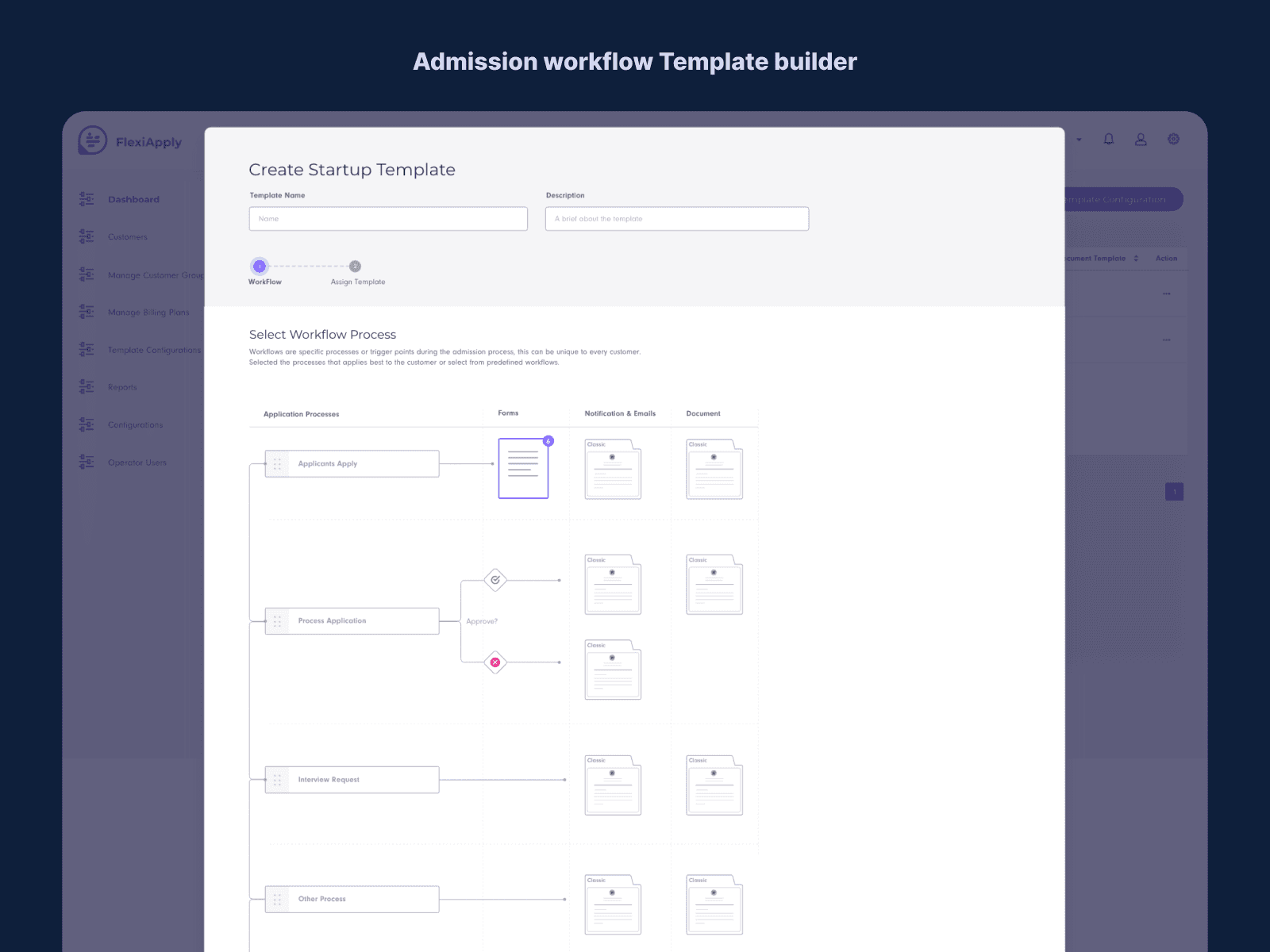


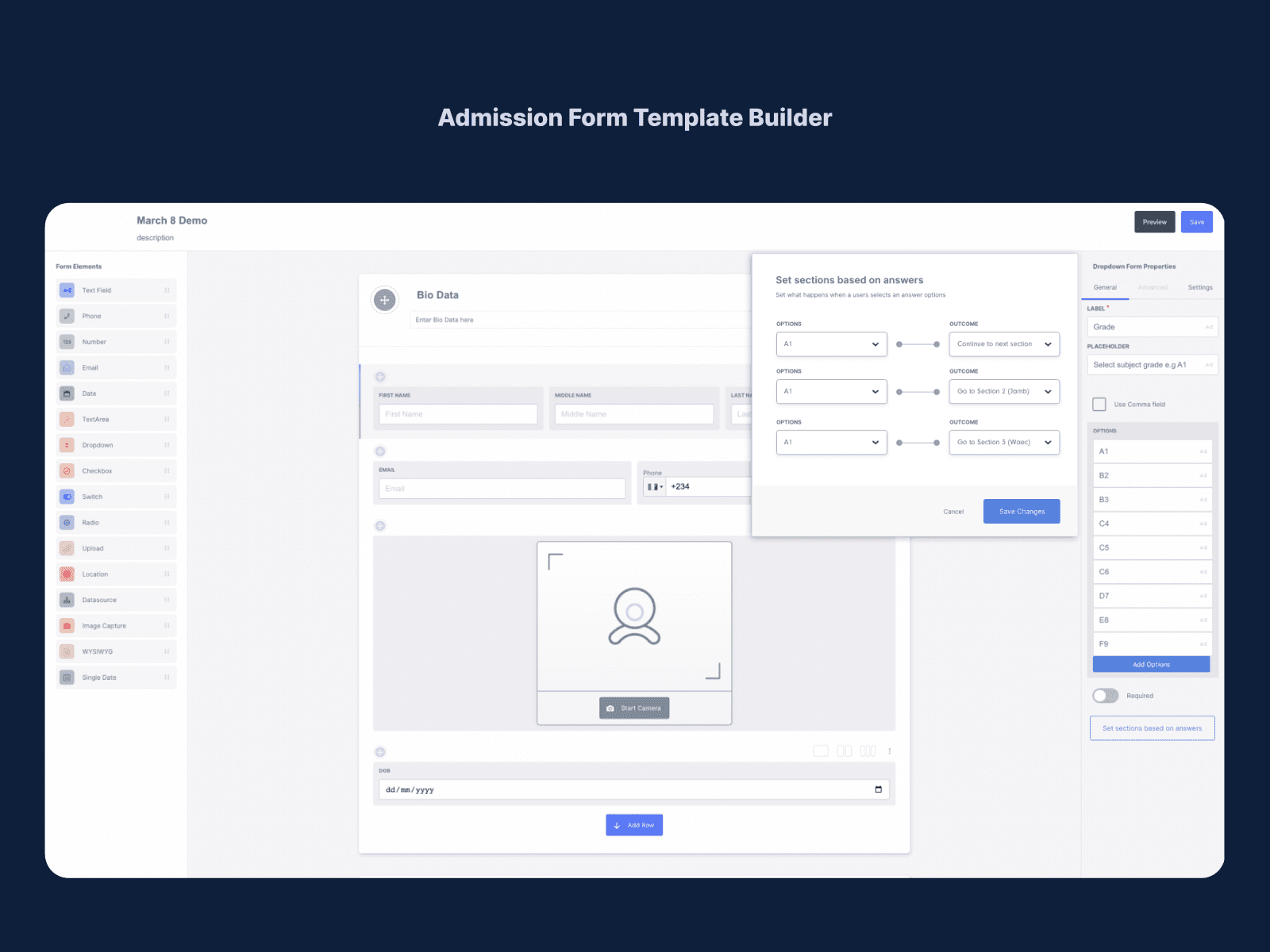


Lessons
Providing timely feedback to applicants improved the user experience. Clear and concise communication about the application process, timelines, and expectations reduced confusion and frustration for applicants. The ability to create and save dynamic application form templates helped in transforming the application process for multiple institutions.
It is worthy of note that the interview stage of speaking with the applicants, School administrators, customer success team, and stakeholders helped create key insights that informed the design direction.
Big shout out to
Alhassan, Charles, Muyiwa, Samir, Luqman, Ambat, Lukman.
Thank you
Other Projects
I'm presently open to new creative endeavours, so if you believe I could be a great match for your team or venture, reach out, and let's transform your product concepts into reality.
Designed & developed by Victor Churchill. ©2023 All rights reserved
I'm presently open to new creative endeavours, so if you believe I could be a great match for your team or venture, reach out, and let's transform your product concepts into reality.
Designed & developed by Victor Churchill. ©2023 All rights reserved
I'm presently open to new creative endeavours, so if you believe I could be a great match for your team or venture, reach out, and let's transform your product concepts into reality.
Designed & developed by Victor Churchill. ©2023 All rights reserved
I'm presently open to new creative endeavours, so if you believe I could be a great match for your team or venture, reach out, and let's transform your product concepts into reality.
Designed & developed by Victor Churchill. ©2023 All rights reserved